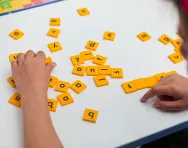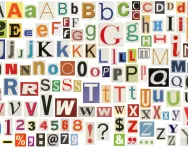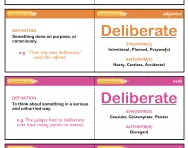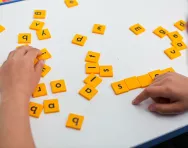Important update from TheSchoolRun
For the past 13 years, TheSchoolRun has been run by a small team of mums working from home, dedicated to providing quality educational resources to primary school parents. Unfortunately, rising supplier costs and falling revenue have made it impossible for us to continue operating, and we’ve had to make the difficult decision to close. The good news: We’ve arranged for another educational provider to take over many of our resources. These will be hosted on a new portal, where the content will be updated and expanded to support your child’s learning.
What this means for subscribers:
- Your subscription is still active, and for now, you can keep using the website as normal — just log in with your usual details to access all our articles and resources*.
- In a few months, all resources will move to the new portal. You’ll continue to have access there until your subscription ends. We’ll send you full details nearer the time.
- As a thank you for your support, we’ll also be sending you 16 primary school eBooks (worth £108.84) to download and keep.
A few changes to be aware of:
- The Learning Journey weekly email has ended, but your child’s plan will still be updated on your dashboard each Monday. Just log in to see the recommended worksheets.
- The 11+ weekly emails have now ended. We sent you all the remaining emails in the series at the end of March — please check your inbox (and spam folder) if you haven’t seen them. You can also follow the full programme here: 11+ Learning Journey.
If you have any questions, please contact us at [email protected]. Thank you for being part of our journey it’s been a privilege to support your family’s learning.
*If you need to reset your password, it will still work as usual. Please check your spam folder if the reset email doesn’t appear in your inbox.
How to build your child’s vocabulary

Recently, a survey of teachers from 800 secondary schools revealed that many children are leaving primary school with a vocabulary that’s inadequate for their age.
Four out of 10 pupils have such a limited vocabulary that it’s affecting their learning, according to the study.
Vocabulary matters for many reasons. Children in Year 6 need to understand a wide range of words to succeed in their SATs; currently, almost 30% fail to reach the expected standard in reading.
‘The topics of the reading paper could be anything, so it’s really important to have a wide vocabulary covering a range of contexts,’ says teacher Jack Phillips, who blogs at verbivoreteacher.com.
A broad vocabulary is also essential for the 11+ grammar school entrance test.
And it’s not just in the classroom that vocabulary matters.
‘Words empower children to make sense of the world around them,’ Jack explains. ‘A wide vocabulary helps them to put their emotions into words, socialise with people, imagine and wonder.’
So how can we equip our children with a vocabulary that will help them succeed?
1. Make conversation a priority
Young children are like sponges, so it’s important to immerse them in language right from the start.
‘The number of words children learn in the early years is closely related to their future success,’ says Alice Penfold, Project Manager of the Words for Work programme at the National Literacy Trust.
‘The quality of parent-child interactions is one of the biggest factors influencing vocabulary, so it’s vital to talk to your child and expose them to different words.
‘Try naming objects, using number words, and introducing words that explain emotions: the more words they understand, the more they will be able to use.’
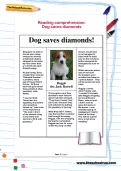

Download brilliant reading comprehension resources
- The Stolen Book of Spells workbook
- PLUS 100s of fantastic reading comprehension worksheets
- All divided by school year
2. Read together
‘The key to a wide vocabulary is a love of reading,’ Alice says. ‘It’s important to make reading a routine, with a regular slot everyday.
‘Don’t just read school books: recognise your child’s interests and find books that relate to them, as this will encourage them to read purely for enjoyment.’
Keep reading aloud to your child, even once they’re able to read independently: kids love to hear stories, and you can build their vocabulary by choosing books that would be too difficult for them to read themselves.
Don’t just stick to stories: reading non-fiction books, children’s newspapers and comics will expose your child to a wider range of words.
‘Talk about what you’re reading, too, as this will help your child’s comprehension,’ Alice adds.
3. Use labels
‘Use Post-It notes to label objects around the house, as this will help your child learn to read new words,’ Jack suggests.
‘As they get older, you can add adjectives to the labels, such as “wooden table,” to broaden their vocabulary further.’
4. Play word games
From I Spy to Scrabble and Bananagrams, there’s a huge range of word games that will help your child learn new words.
‘Making language-learning a part of games is really useful, as it makes it interactive and fun,’ Alice says.
5. Use words in sentences
There’s no point in your child learning new words if they don’t know how to use them. Getting them to use a word in a spoken or written sentence will help them understand its meaning and context.
If your child gets weekly spellings from school, get them to write a sentence that includes each word, encouraging them to look it up in a dictionary if they’re unsure of its meaning.
6. Write for pleasure
Children are sometimes turned off writing by being made to write about things that don’t interest them at school.
Try to counter this by encouraging your child to write for pleasure on any subject that enthuses them. ‘Don’t correct their writing – just let them write for the sake of it,’ Alice says. ‘It’s been proven that children who enjoy writing are seven times more likely to write at the expected level for their age.’
7. Create a word wall
This is a great way to help new words sink into your child’s brain. ‘Write each new word they learn on a strip of paper, and stick them on the wall in their bedroom,’ suggests Jack.
‘If you don’t want to plaster them all over the wall, you can stick them in a word scrapbook instead.’
8. Introduce a word of the day
Introducing a new word each day will boost your child’s vocabulary by 365 (or 366!) words every year, and is an activity that the whole family can get involved with.
You could use a word-a-day calendar or a website or app to suggest new words, or pick them out of a dictionary.
Make sure your child knows the meaning of the word, as they’ll then be able to use it in their own speaking and writing.
9. Play together
‘Playing with your child is crucial for developing communication skills,’ Alice explains. ‘Children learn to make new sounds, talk in full sentences, ask questions and understand how interactions work.
‘It also helps them communicate with other children.’
10. Don’t ‘dumb down’
Children always have a bigger receptive vocabulary than expressive vocabulary: that is, they understand more words than they’re able to use. This means that there’s no need to oversimplify the way in which you talk to your child.
‘Don’t water down your language, as we’re hoping children will pick up on the words we’re using,’ says Jack. ‘Children need to be exposed to a word about 12 times to fully take it in.’
11. Show them how to use a thesaurus
Knowing how to use a thesaurus will increase your child’s vocabulary and improve the quality of their written work, so show them how to use it and encourage them to have it on hand when they’re writing.
You could read through their writing with them, and get them to highlight words that they’ve overused so they can look up alternatives.
12. Introduce word banks
Word banks are collections of related words: for example, adjectives, alternatives to ‘said,’ or nature words.
You’ll find lots of word banks online, or you and your child could make your own using a notebook with a page per word group, adding new words as you find them.
Your child can have word banks on hand when they’re writing to help them find new and more interesting words.
13. Make a big deal of language
‘Positive reinforcement is known to help children learn, so create an environment where vocabulary is praised and celebrated,’ Jack says.
‘Make a fuss of new words your child uses in speaking and writing: the more enjoyable the experience of learning vocabulary, the more children will be geared to pick it up.’


